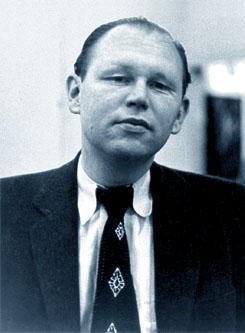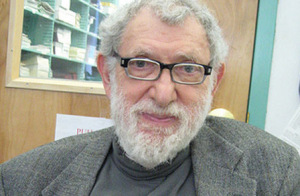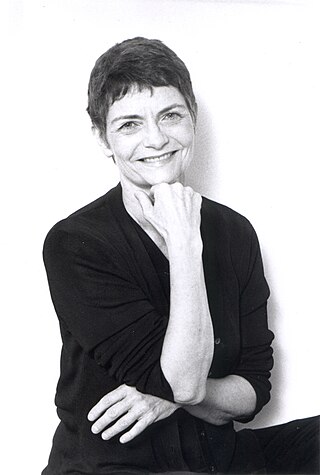Related Research Articles
In software development, obfuscation is the act of creating source or machine code that is difficult for humans or computers to understand. Like obfuscation in natural language, it may use needlessly roundabout expressions to compose statements. Programmers may deliberately obfuscate code to conceal its purpose or its logic or implicit values embedded in it, primarily, in order to prevent tampering, deter reverse engineering, or even to create a puzzle or recreational challenge for someone reading the source code. This can be done manually or by using an automated tool, the latter being the preferred technique in industry.

Poetry, also called verse, is a form of literature that uses aesthetic and often rhythmic qualities of language − such as phonaesthetics, sound symbolism, and metre − to evoke meanings in addition to, or in place of, a prosaic ostensible meaning. A poem is a literary composition, written by a poet, using this principle.

Perl is a high-level, general-purpose, interpreted, dynamic programming language. Though Perl is not officially an acronym, there are various backronyms in use, including "Practical Extraction and Reporting Language".
An esoteric programming language is a programming language designed to test the boundaries of computer programming language design, as a proof of concept, as software art, as a hacking interface to another language, or as a joke. The use of the word esoteric distinguishes them from languages that working developers use to write software. The creators of most esolangs do not intend them to be used for mainstream programming, although some esoteric features, such as visuospatial syntax, have inspired practical applications in the arts. Such languages are often popular among hackers and hobbyists.

Rae Armantrout is an American poet generally associated with the Language poets. She has published more than two dozen books, including poetry and prose.

Jack Spicer was an American poet often identified with the San Francisco Renaissance. In 2009, My Vocabulary Did This to Me: The Collected Poetry of Jack Spicer won the American Book Award for poetry. He spent most of his writing life in San Francisco.
Digital poetry is a form of electronic literature, displaying a wide range of approaches to poetry, with a prominent and crucial use of computers. Digital poetry can be available in form of CD-ROM, DVD, as installations in art galleries, in certain cases also recorded as digital video or films, as digital holograms, on the World Wide Web or Internet, and as mobile phone apps.
"Black Perl" is a code poem written using the Perl programming language. It was posted anonymously to Usenet on April 1, 1990, and is popular among Perl programmers as a piece of Perl poetry. Written in Perl 3, the poem is able to be executed as a program.
Electronic literature or digital literature is a genre of literature where digital capabilities such as interactivity, multimodality or algorithmic text generation are used aesthetically. Works of electronic literature are usually intended to be read on digital devices, such as computers, tablets, and mobile phones. They cannot be easily printed, or cannot be printed at all, because elements crucial to the work cannot be carried over onto a printed version.

John Hollander was an American poet and literary critic. At the time of his death, he was Sterling Professor Emeritus of English at Yale University, having previously taught at Connecticut College, Hunter College, and the Graduate Center, CUNY.

Fujiwara no Shunzei was a Japanese poet, courtier, and Buddhist monk of the late Heian period. He was also known as Fujiwara no Toshinari or Shakua (釈阿) and when younger (1123–67) as Akihiro (顕広). He was noted for his innovations in the waka poetic form and compiling the Senzai Wakashū, the seventh imperial anthology of waka poetry.

Nick Montfort is a poet and professor of digital media at MIT, where he directs a lab called The Trope Tank. He also holds a part-time position at the University of Bergen where he leads a node on computational narrative systems at the Center for Digital Narrative. Among his publications are seven books of computer-generated literature and six books from the MIT Press, several of which are collaborations. His work also includes digital projects, many of them in the form of short programs. He lives in New York City.

Annie Finch is an American poet, critic, editor, translator, playwright, and performer and the editor of the first major anthology of literature about abortion. Her poetry is known for its often incantatory use of rhythm, meter, and poetic form and for its themes of feminism, witchcraft, goddesses, and earth-based spirituality. Her books include The Poetry Witch Little Book of Spells, Spells: New and Selected Poems, The Body of Poetry: Essays on Women, Form, and the Poetic Self, A Poet's Craft, Calendars, and Among the Goddesses.

Brenda Hillman is an American poet and translator. She is the author of ten collections of poetry: White Dress, Fortress, Death Tractates, Bright Existence, Loose Sugar, Cascadia, Pieces of Air in the Epic, Practical Water, for which she won the LA Times Book Award for Poetry, Seasonal Works with Letters on Fire, which received the 2014 Griffin Poetry Prize and the Northern California Book Award for Poetry, and Extra Hidden Life, among the Days, which was awarded the Northern California Book Award for Poetry. Among the awards Hillman has received are the 2012 Academy of American Poets Fellowship, the 2005 William Carlos Williams Prize for poetry, and Fellowships from the National Endowment for the Arts and the Guggenheim Foundation. A professor of Creative Writing, she holds the Olivia Filippi Chair in Poetry at Saint Mary's College of California, in Moraga, California. Hillman is also involved in non-violent activism as a member of the Code Pink Working Group in the San Francisco Bay Area. In 2016, she was elected a Chancellor of the Academy of American Poets.

Stephanie Strickland is a poet living in New York City. She has published ten volumes of print poetry and co-authored twelve digital poems. Her files and papers are being collected by the David M. Rubenstein Rare Book And Manuscript Library at Duke University.

Big Poppa E is an American performer of slam poetry. His live performances combine poetry, stand-up comedy, and dramatic monologue.
The following outline is provided as an overview of and topical guide to the Perl programming language:
Game, Game, Game, and again Game is a digital poem and game by Jason Nelson, published on the web in 2007. The poem is simultaneously played and read as it takes the form of a quirky, hand-drawn online platform game. It was translated into French by Amélie Paquet for Revue Blueorange in 2010. Its sequel is I made this. You play this. We are Enemies (2009).
ReRites is a literary work of "Human + A.I. poetry" by David Jhave Johnston that used neural network models trained to generate poetry which the author then edited. ReRites won the Robert Coover Award for a Work of Electronic Literature in 2022.
Lexia to Perplexia is a poetic work of electronic literature published on the web by Talan Memmott in 2000. The work won the trAce/Alt-X New Media Writing Award that year.
References
- ↑ Davenport, Matt (2016-06-09). "Algorithms meet art at Code Poetry Slam held at Stanford". Stanford School of Engineering. Retrieved 2020-05-21.
- ↑ Funkhouser, C. T. (2012). New Directions in Digital Poetry. A&C Black. p. 255. ISBN 978-1-4411-1591-1.
- ↑ Jackson, Joab (2011-11-16). "Obfuscated Code Contest Returns". PCWorld. Retrieved 2020-05-21.